How Long Do Bearded Dragons Live: Lifespan and Factors Affecting It
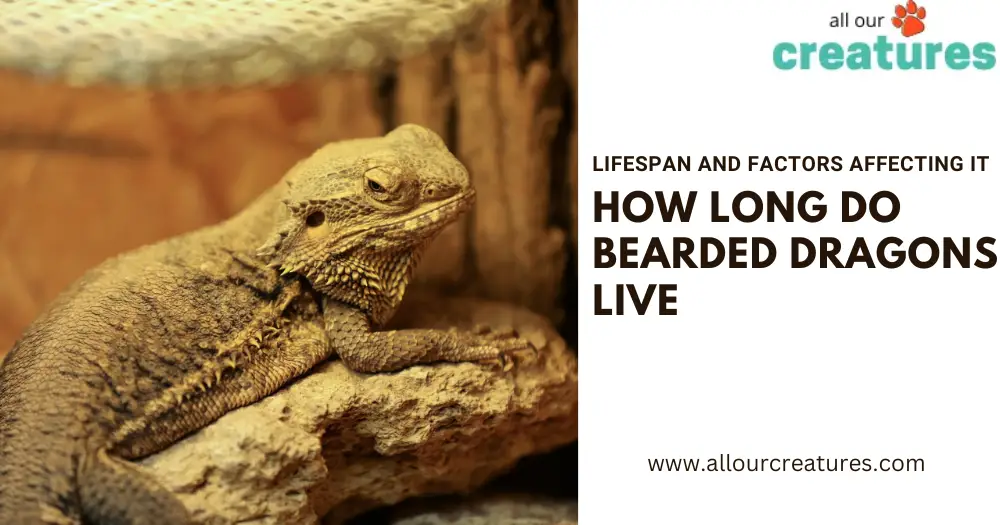
Curious about the lifespan of pet bearded dragons? Understanding how long do bearded dragons live is essential for reptile pet owners. These captivating creatures can live anywhere from 5 to 15 years, with factors like proper care, a healthy diet, and habitat playing vital roles.
In this article, we explore the lifespan of bearded dragons, including the oldest recorded individuals, the impact of gender and age, and the influence of factors like metabolic bone disease. Learn how to create a healthy and happy environment to ensure your bearded dragon thrives throughout its six life stages.
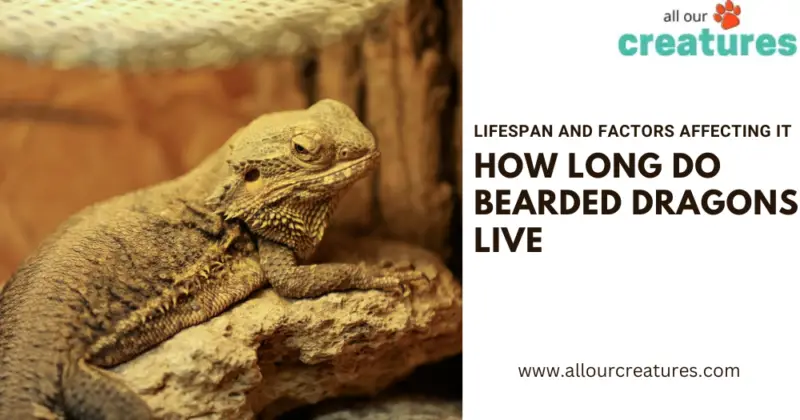
Contents
Table of Contents
How Long Do Bearded Dragons Live?
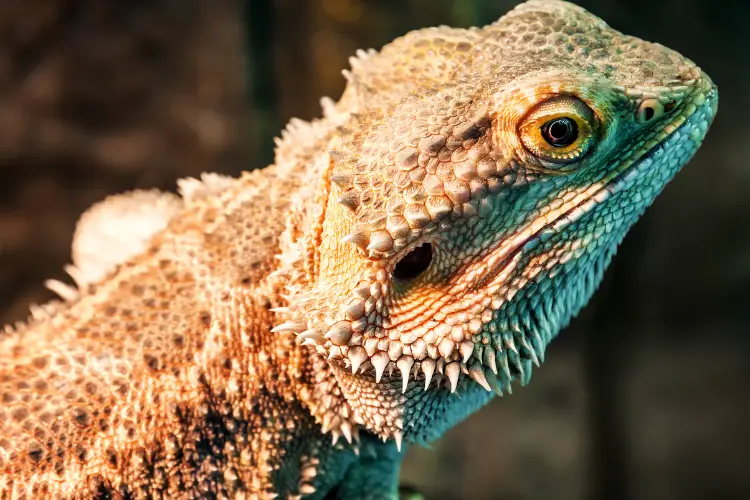
Bearded dragons are popular pets among reptile enthusiasts due to their unique appearance and amiable temperament. One of the primary concerns when considering a bearded dragon as a pet is their lifespan, as it can influence the level of commitment and care required by their owners.
In captivity, these fascinating creatures can live between 8 and 15 years, depending on factors such as their living environment, diet, and the quality of care they receive.
Purchasing a bearded dragon from a reputable seller is crucial for ensuring a longer, healthier life for your pet. These sellers are more likely to provide beardies with proper care, including appropriate nutrition and living conditions. Moreover, genetics play a role in the overall lifespan of bearded dragons, which can also be influenced by the breeder.
In the wild, bearded dragons tend to have shorter lifespans – around 5 to 10 years – due to challenges such as food scarcity, lack of consistent water supply, and the presence of predators. However, with proper care, captive bearded dragons can lead fulfilling lives and thrive as loving pets for many years.
Bearded Dragon Lifespan
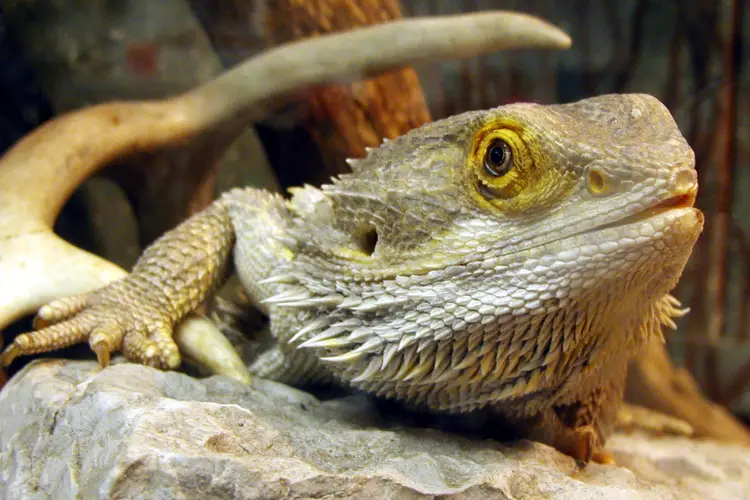
Bearded dragons, also known as beardies or Pogona, are popular reptiles kept as pets due to their gentle temperament and unique appearance. Their lifespan, however, varies depending on several factors such as genetics, living conditions, and diet.
In the Wild
In their natural habitat, bearded dragons have a shorter lifespan compared to their captive counterparts. This is mainly due to the presence of predators and limited availability of food. On average, wild bearded dragons live between 3-8 years.
In the wild, bearded dragons experience different seasonal changes that affect their growth, reproduction, and eating patterns. For example, during the winter months, they may enter a state of hibernation called brumation, which helps them conserve energy.
In Captivity
When provided with proper care, bearded dragons can live a longer and healthier life in captivity. The average bearded dragon lifespan in captivity ranges from 8 to 15 years. With an ideal living environment, appropriate diet, and regular health check-ups, some beardies can even reach up to 18 years of age.
Here are some tips to ensure a longer and healthier life for your bearded dragon:
- Purchase your beardie from a reputable seller to avoid potential genetic issues
- Provide a clean and spacious enclosure with proper heating and lighting
- Regular veterinary check-ups to diagnose and treat health issues early
- Provide a well-balanced, nutritious diet and fresh water
- Socialize and handle your bearded dragon gently and regularly for mental stimulation
By following these guidelines, you can help maximize the lifespan of your bearded dragon and enjoy a long-lasting bond with your scaly companion.
Factors Affecting Lifespan
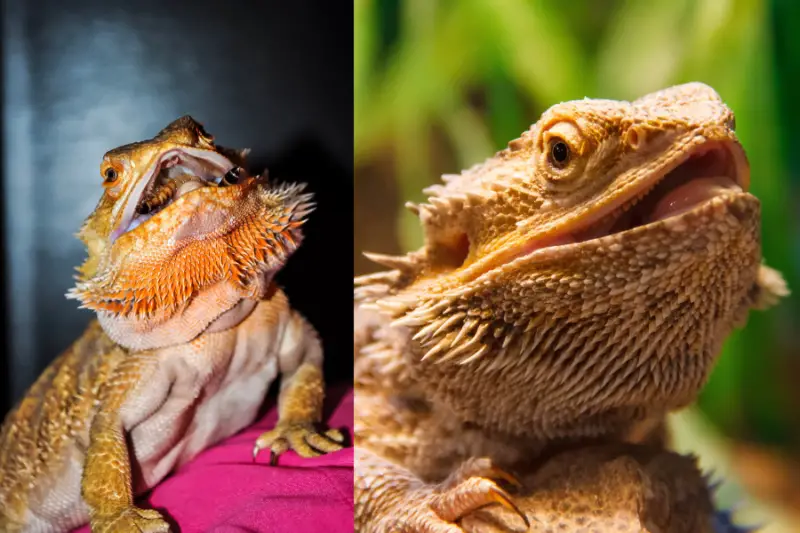
Genetics and Species
Bearded dragons’ lifespans are influenced by their genetics and species. On average, they live between 8-12 years; however, variations in size, sex, and other factors can impact their longevity.
Environment
A proper environment plays a crucial role in the lifespan of bearded dragons. Some essential elements include:
- Lighting: Bearded dragons require UVB lighting, which helps metabolize calcium and prevents metabolic bone disease.
- Temperature: They need a temperature gradient and basking area; ideal temperatures range from 90-110°F in the basking area and 75-85°F in the cooler part of the enclosure.
- Humidity: Maintaining suitable humidity levels (30-40%) helps prevent respiratory issues and supports shedding.
- Substrate: Choosing the right substrate, such as reptile carpet or tiles, minimizes ingestion risk and maintains proper cleanliness.
Diet and Nutrition
Nutrition is another critical factor that affects bearded dragons’ lifespan. A balanced diet is necessary for their overall health, and it can be achieved by providing:
- A variety of insects, such as crickets and mealworms, for protein and essential nutrients.
- Fruits and vegetables, including leafy greens, berries, and squash, to supply vitamins and minerals.
- Calcium and vitamin D3 supplements to support bone health.
Health and Illness
Preventing health issues is vital for a bearded dragon’s longevity. Common problems include:
- Metabolic Bone Disease: This condition results from inadequate calcium or lack of UVB exposure, leading to weak bones and deformities.
- Respiratory Infections: Caused by high humidity, cold temperatures, or dirty enclosures, these infections can be severe if left untreated.
- Parasites: Internal and external parasites can cause a variety of issues, including weight loss and lethargy. Regular fecal exams help monitor parasite presence.
In conclusion, a bearded dragon’s lifespan is affected by several factors, including genetics, environment, diet, and health. Proper care and attention to these factors can significantly increase their life expectancy in captivity.
Proper Care for Longevity
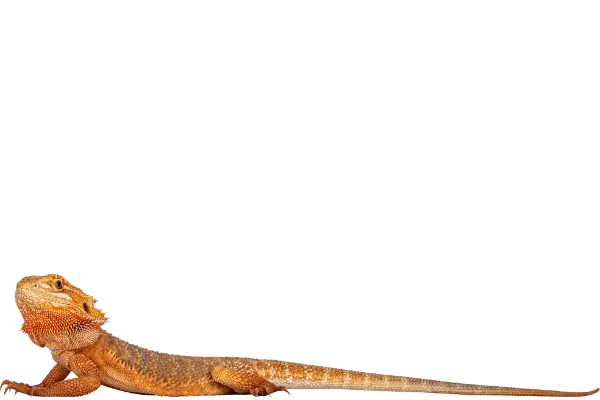
Habitat Setup
A well-established habitat is crucial for a bearded dragon’s longevity. The enclosure should be at least 40 gallons, with a basking area, a cooler zone, and a hiding spot. Make sure to provide proper UVB lighting for their well-being and calcium absorption.
Maintain the temperature between 95-110°F in the basking area and 75-80°F in the cooler section. Clean the enclosure regularly to ensure a healthy environment.
Diet and Supplements
Bearded dragons have specific dietary requirements to promote their health and life expectancy. Their diet must include a variety of vegetables, fruits, and protein sources, such as insects. Offer calcium supplements to prevent deficiencies and ensure proper nutrition. A balanced diet for adult bearded dragons should consist of the following:
- 70% vegetables and greens
- 20% insects
- 10% fruit
Feed juveniles with higher protein content – around 60% insects and 40% greens. Adequate hydration is also essential, so provide a shallow water dish for drinking and occasional soaking.
How Long do Bearded Dragon’s Live? | Average Lifespan
Health Monitoring and Veterinary Care
Routine health monitoring is central to a bearded dragon’s well-being. Observe their behavior, appetite, and physical appearance regularly. Signs of illness might include lethargy, loss of appetite, or changes in their feces. Promptly address any concern to prevent the progression of health issues.
Schedule annual check-ups with a reptile veterinarian to ensure your bearded dragon’s health. Follow their recommendations for screenings, vaccinations, and parasite control. In some cases, bearded dragons may need to undergo brumation, a form of hibernation. Consult your vet for proper guidance during this period.
Handling and Socialization
Regular handling and socialization contribute to a stress-free environment and support a healthy bearded dragon lifespan. Always handle your pet gently, supporting their entire body during interactions. Encourage socialization while maintaining a calm and relaxed demeanor to help them feel secure. Be observant of their body language and adjust your approach as needed.
By ensuring proper habitat setup, diet, health monitoring, veterinary care, and handling, you can promote the longevity of your bearded dragon and enjoy their companionship for 8 to 15 years, or even longer in some cases.
Common Health Issues Affecting Lifespan
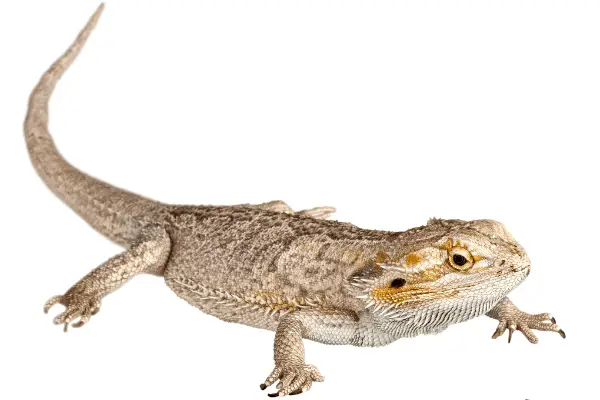
Metabolic Bone Disease
Metabolic Bone Disease (MBD) is a common issue in bearded dragons that results from an imbalance of calcium, phosphorus, and vitamin D3. Insufficient UVB exposure and an improper diet are the primary reasons for MBD. Signs of MBD include a softening of the jaw, deformities in limbs, and an overall lethargic behavior.
To prevent MBD, ensure that your bearded dragon receives adequate UVB exposure and has a balanced diet including calcium-rich foods and supplements.
Impaction
Impaction is a serious health problem in bearded dragons caused by the ingestion of indigestible materials like sand, gravel, and other substrate components. It results in a blockage in the digestive tract, causing severe pain and potentially leading to death. Symptoms of impaction are a lack of appetite, limited mobility, and constipation.
Prevent impaction by using safe substrates like newspaper, reptile carpet, or tile, and ensuring that the size of the insects fed to the bearded dragon is appropriate for its age and size.
Respiratory Infections
Respiratory infections in bearded dragons can be caused by various factors such as improper temperature and humidity levels, unhygienic living conditions, and exposure to other sick reptiles. Symptoms of respiratory infection include wheezing, nasal discharge, and difficulty breathing.
To prevent respiratory infections, maintain appropriate temperature and humidity levels, keep the enclosure clean, and avoid exposing your dragon to other sick reptiles. If you notice any signs of infection, consult a veterinarian immediately.
Parasites
Bearded dragons can suffer from a variety of parasites, both internal and external. Internal parasites, such as coccidia and pinworms, can cause diarrhea, weight loss, and lethargy. External parasites, like mites and ticks, can cause skin irritation and stress.
Prevent parasites by regularly cleaning your bearded dragon’s enclosure and ensuring that any food provided is parasite-free. If you suspect that your dragon has a parasite issue, consult a veterinarian for proper treatment.
Bearded Dragon Species and Lifespan
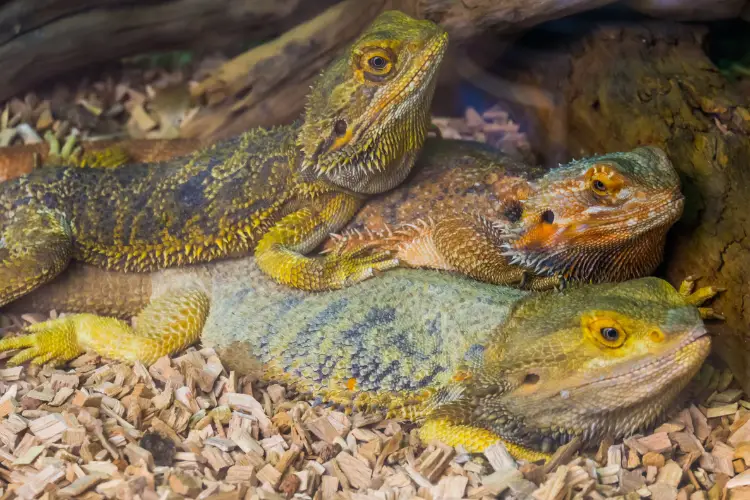
Bearded dragons are popular reptiles known for their unique appearance, spiky beard, and gentle temperament. Their lifespan varies depending on the species and the quality of care they receive. Let’s take a look at some of the most common bearded dragon species and their lifespans.
Central Bearded Dragon
The Central Bearded Dragon (Pogona vitticeps) is the most popular species in captivity. They originate from the central region of Australia and are known for their distinctive triangular head and spiked throat. Central Bearded Dragons have an average lifespan of 8 to 12 years in captivity, with some living up to 15 years through proper care.
Inland Bearded Dragon
The Inland Bearded Dragon is another name for the Central Bearded Dragon (Pogona vitticeps). As both names refer to the same species, their lifespans are identical. Inland Bearded Dragons can live between 8 to 12 years in captivity, with rare cases living up to 15 years.
Eastern and Western Bearded Dragons
Eastern Bearded Dragons (Pogona barbata) and Western Bearded Dragons are two distinct species with similar lifespans. Eastern Bearded Dragons are native to eastern Australia, while Western Bearded Dragons inhabit the western region.
Their lifespans are not well-documented compared to Central Bearded Dragons, but they are assumed to have average lifespans in the same range of 8 to 12 years.
Rankin’s Bearded Dragon
Rankin’s Bearded Dragon (Pogona henrylawsoni), also known as Lawson’s Bearded Dragon, is a smaller species native to Australia. They have friendly personalities, making them excellent pets. However, their lifespans tend to be shorter compared to other species. Rankin’s Bearded Dragons typically live around 6 to 10 years, depending on the quality of care.
To summarize, there are several popular species of Bearded Dragons, including the Central Bearded Dragon (also known as the Inland Bearded Dragon), Eastern and Western Bearded Dragons, and Rankin’s Bearded Dragon. Bearded dragon’s age range from 6 to 15 years, depending on the species and quality of care provided.
FAQs: How Long Do Bearded Dragons Live

Q: How long do pet bearded dragons live?
A: A pet bearded dragons has an average lifespan of five to eight years, although with proper care, it can live up to 10 years or even longer.
Q: What is the lifespan of a bearded dragon?
A: The lifespan of bearded dragons can vary. On average, they live between 8 and 12 years, but some have been known to live up to 15 years or more.
Q: Do male bearded dragons live longer than females?
A: Generally, there is no significant difference in lifespan between male and female bearded dragons. Both genders can live a similar length of time if provided with proper care.
Q: How can I ensure a long and healthy life for my bearded dragon?
A: Providing a suitable enclosure, a balanced diet consisting of leafy greens and live insects, regular veterinary check-ups, and a clean environment are crucial factors for ensuring a long and healthy life for your bearded dragon.
Q: What are the key factors affecting a bearded dragon’s lifespan?
A: Factors such as proper diet, appropriate heat and lighting, avoidance of metabolic bone disease, a stress-free environment, and prompt veterinary care play significant roles in influencing a bearded dragon’s lifespan.

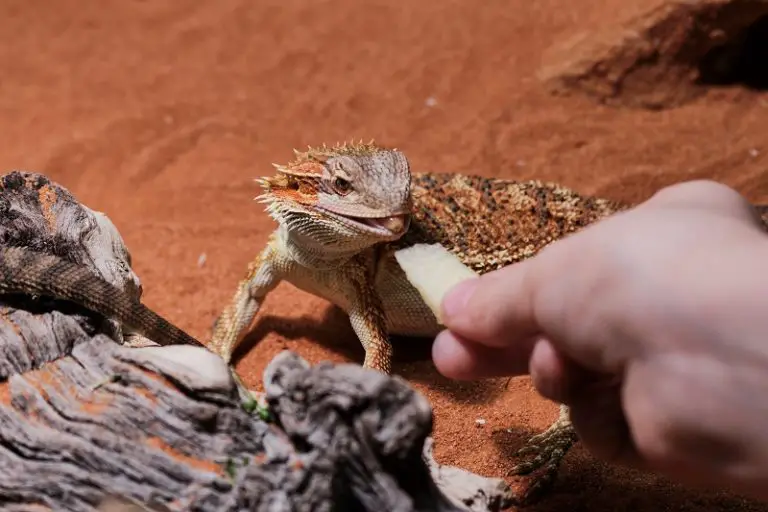
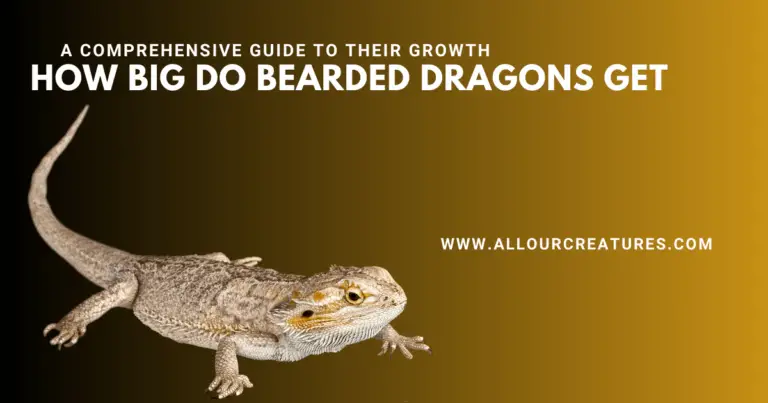
![What Do Bearded Dragons Do For Fun? [Activities & Toys]](https://allourcreatures.com/wp-content/uploads/2021/10/bearded-dragon-1-768x514.jpg)
![Best Bedding For Bearded Dragons [Full Guide + Top Options]](https://allourcreatures.com/wp-content/uploads/2021/12/bigstock-Bearded-Agama-latin-Pogona-V-396699188-768x498.jpg)
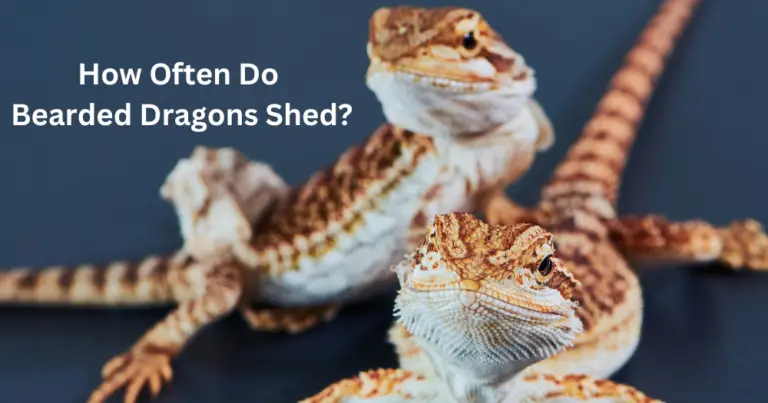
![Best Insects For Bearded Dragons [Must Read]](https://allourcreatures.com/wp-content/uploads/2021/10/bigstock-A-Bearded-Dragon-pogona-Sp-E-412949071-768x512.jpg)